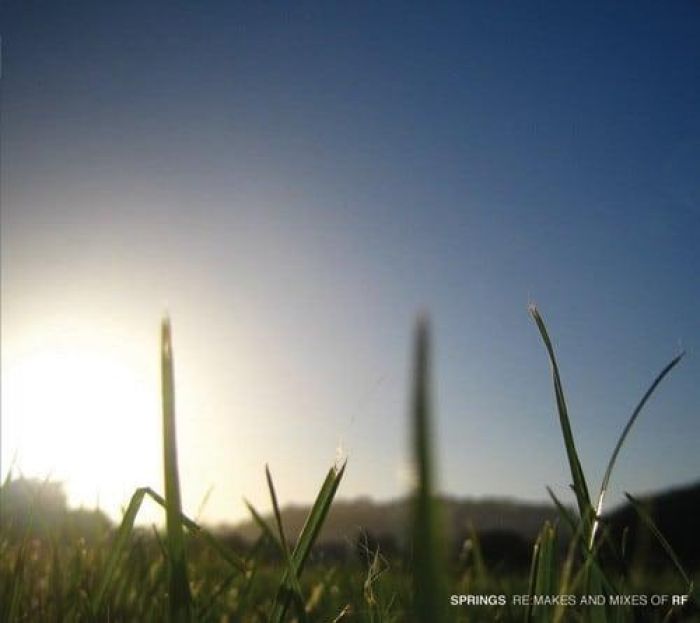Springs: Remakes and Mixes of RF by Various Artists (Review)

Over the course of 4 years, Ryan Francesconi has released three albums’ worth of lovely acoustic-ambient music under the RF moniker. All of RF’s music is characterized by an almost preternatural blend of electronic elements — samples, loops, effects processing, glitch — and more acoustic, traditional elements — vocal arrangements, strings, horns, ethnic instrumentation. The result is music that is as technically intriguing as it is intimate and warm, drawing inspiration from such diverse sources as the changing seasons, Francesconi’s world travels, and the writings of Haruki Murakami.
Springs is the latest RF-related release, this time a collection of remixes by various friends and allies, as well as Francesconi himself. But “remix” is perhaps too limited a term in this context; you won’t hear any extended club-friendly four-on-the-floor singles on the disc. Perhaps “reworking” is a more apt term, as the 10 songs on Springs take various songs from all three of RF’s full-lengths, sometimes reworking the entire song, sometimes just a melodic fragment or two, or sometimes just the theme of the song in question.
Familiar Trees’ version of “Sunspot” is easily one of the disc’s highlights, a stirring piece that opens with Lila Sklar’s aching violin and unfolds at only the most graceful of paces, with horns, bells, and Fabiola Sanchez’ dreamy-yet-seductive vocals drifting through and completing the mood. He Can Jog’s “Our Homework” is shifting palette of guitar textures and glitchy, pulsing swaths of sound whereas Kranky artist Greg Davis’ “Aquifers & Conifers” takes RF’s granulated sound and turns it into a bubbling, aquatic place that submerges the listener in a cool mountain pool.
One of the more unusual and intriguing remixes is Sora’s take on “A Very Lucky Year,” which starts off with various field recordings, ping pong-ing guitars, and cut-up vocals before segueing into a light jazz number replete with gently melodic piano lines, picked guitars, scattered drums, and some lively horn pips. At the other end of the spectrum, Midori Hirano’s “Green Spring” is a bit more solemn and melancholy, with a light organ melody drifting over rain-filled field recordings, wordless female vocal drifts, and sparse guitar tones.
Francesconi even takes a turn at remixing his music, and drawing from both Interno and Falls, turns in the echo-laden “Internal Notes 4+6,” which finds sculpted guitars wedded to mourning violins and shapeless female vocals. “RF” concludes the album with an old recording of Francesconi’s mother singing a little lullaby mixed together with dreamy guitars, toy xylophone, violin, and ever-increasing amounts of droney electronics.
Obviously, Springs is not as strong as Francesconi’s own work, simply because it doesn’t have the same thematic and conceptual weight that ties each of RF’s albums together, but it’s still full of fascinating moments. Like much of Francesconi’s music, it can leave the listener in a nostalgia-soaked haze, one that has been constructed as much out of artificial “ones” and “zeroes” as “real” elements.
However, I challenge you to figure out where one ends and the other begins, and just how such seemingly opposite elements — the cold, lifeless digital bits and the traditional, acoustic instrumentation — can combine to convey such emotional warmth.